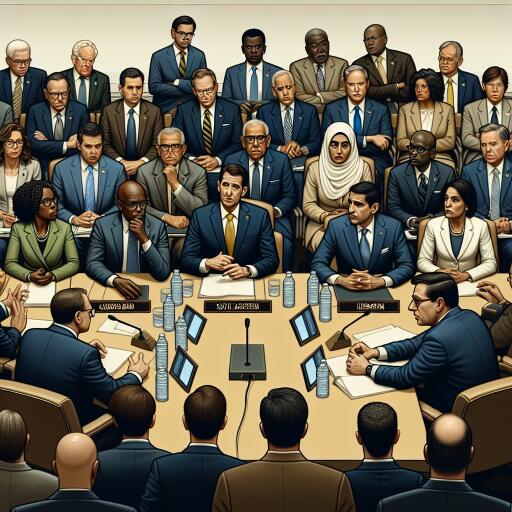Congress to Decide on TikTok’s Fate in the US with Upcoming Vote
In a significant move that could reshape the social media landscape in the United States, a vote is imminent in the House of Representatives regarding a proposal to ban TikTok nationwide. This critical legislation, slated for a vote this Wednesday, targets the widely popular video-sharing app owned by ByteDance, a corporation headquartered in China. The proposed ban, igniting bipartisan concern, suggests a divestiture of TikTok’s operations in the United States as a potential alternative to a total prohibition.
A recent analysis suggests that ByteDance considers divesting its U.S. segment as a drastic measure to avert a complete shutdown. Legislators, including Rep. Mike Gallagher (R-WI) and Rep. Raja Krishnamoorthi (D-IL), have framed the app as a significant security concern. They argue that the app poses a “grave threat” to national security, with the potential for user data to be exploited by China for manipulative purposes.
The debate over TikTok’s presence in the U.S. isn’t new; it has resurfaced from discussions that took place during the Trump Administration. Back then, TikTok responded to threats of a ban by highlighting the cultural impact of such a decision, stating that restricting the app would essentially limit the global reach of American culture and values. The company emphasized its disappointment with the legislation, pointing out the negative implications for the free speech of millions of TikTok enthusiasts in the U.S.
Although no nationwide ban has been instituted so far, certain states have taken independent action. Notably, Montana has already passed a law prohibiting TikTok, citing concerns over data privacy and national security. The law argues that the Chinese government has considerable sway over ByteDance, potentially accessing sensitive user information. Moreover, the state criticized the platform for not adequately policing content that could endanger minors.
Reacting to these developments, TikTok has voiced its intention to defend the rights of its user base and creators, especially in Montana. The company criticized the state’s move as a severe form of government overreach, threatening not only the livelihoods of numerous individuals but also the constitutional right to free speech. TikTok’s response underscores the complexity of the situation, balancing national security concerns with issues related to freedom of expression and economic interests.
As the vote approaches, the outcome remains uncertain but could have far-reaching implications for the digital and cultural landscape in the United States. While concerns over data privacy and national security are at the forefront, the potential ban also raises questions about international commerce, freedom of expression, and the global influence of American cultural exports.
Should the legislation pass, the ripple effects will undoubtedly be felt not just within the tech and social media sectors but across the broader canvas of American life, marking a pivotal moment in the ongoing discourse over digital privacy, security, and the role of government in regulating the internet.








